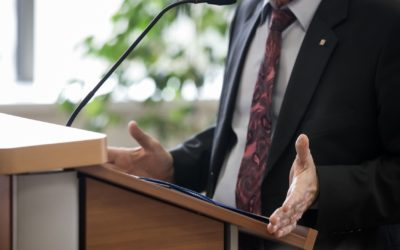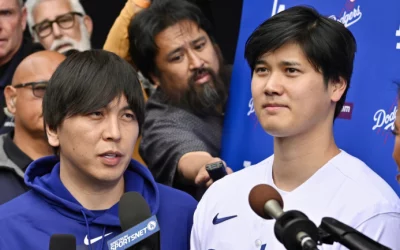#101© Copyright 2004, all rights reserved worldwide Gambling and the Law® is a registered trademark of Professor I Nelson Rose, Whittier Law School, Costa Mesa, CA
Legal gambling is once again a hot political issue.
The November 2004 elections will not be a repeat of the November 2002 elections. For anyone who has been following developments over the last few years, especially the proliferation of gaming devices, the ballots look more like a Hollywood remake than a TV rerun. The plots are almost the same, but the actors and locales are different.
Voters are being asked to decide whether racinos, casinos, lotteries and raffles should be allowed, but much more. It is a measure of how important and widespread gaming has grown that it has become an issue in political races throughout the nation.
In Pennsylvania, for example, the recently passed legislation which would bring in more than 60,000 slot machines, more than in any other state except Nevada, has drawn partisan criticism before a single license has been issued.
The legislation was a quicky political compromise concocted by Democratic Gov. Ed Rendell and the Republican-controlled Legislature. It was rushed through over the Fourth of July weekend.
Incumbent Republican Attorney General Jerry Pappert was cut out of the political wheeling-and-dealing and his office was given no role in regulating the new casino industry. He has now publicly criticized the statute’s law enforcement provisions.
Pappert is not running for reelection. But his public statements set the stage for the Republican nominee to succeed him, Tom Corbett, a former U.S. Attorney, to call for the Legislature and Governor to rewrite the law. This, in turn, put pressure on his Democratic opponent, Jim Eisenhower, to defend a bill that he did not write.
Eisenhower, a distant relative of the late President, but a life-long Democrat, has close connections with Democratic politicians, including Gov. Rendell, who are responsible for the new law. Not wanting to admit the hastily written statute is flawed, Democrats in the House have already said they will not rewrite the bill. To escape his predicament, Eisenhower has condemned the Republicans for “making reckless statements for political reasons,” while pledging to reexamine every other part of the state’s criminal code.
For the industry, this means that the racinos and resort-casinos anticipated under the new Pennsylvania slot machine law might be delayed if Corbett and the Republicans win on November 2, 2004.
In most other states, gambling issues cross party lines and ideologies. Some religious, conservative Republicans may oppose legalizing gaming, but so do some liberal Democrats. Only one of the presidential candidates has taken a firm position: Ralph Nader is an “anti,” because he feels low income people should be protected from making the wrong decisions about how they should spend their money.
On the surface, ballot measures appear to be about whether some form of gambling should be authorized. In fact, the fights are actually battles among existing forms of gambling for market share.
For example, the November Oklahoma ballot contains State Question 712, which, if approved, enacts “the State-Tribal Gaming Act.” But the Legislature approved putting this on the ballot only after a provision was added protecting the state’s racetracks. The Act expressly provides that if at least four tribes sign compacts, three non-tribal racetracks will be allowed to have the same gaming devices.
Incidentally, these are not your normal slot machines or Video Lottery Terminals (VLTs). They are described in one section of the Act as “an electronic bonanza-style bingo game, an electronic amusement game, an electronic instant bingo game.” Whatever these strange devices may be, they are clearly gambling games: Another provision expressly allows linked, progressive jackpots.
Michigan voters will decide whether the State Constitution should be amended to require a statewide and local vote before any new non-Indian gambling facility can open or the state can use VLTs. The backers are – surprise – tribes and Detroit’s casino owners. The opponents are racetracks, which have almost succeeded in getting a bill through the Legislature to allow them to have – surprise, again – VLTs.
California has two of the hottest ballot fights in the nation, neither of which can be labeled Democrat or Republican. I have been hired as a legal consultant to Prop. 68, so I will not discuss these, other than this quick summary:
Prop. 68 would require tribes to share 25% of their slot machine winnings with the state or lose their monopoly to 11 cardclubs and 5 tracks, which would give the state 33%.
Prop. 70 would allow tribes to have as many slot machines and all forms of casino games as they want for 99 years and would require them to share 8.84% of their net gaming income with the state. However, “in the event the Indian tribes lose their exclusive right to conduct Class III gaming in California,” the tribes’ obligation to pay anything “shall cease.” It is interesting to note that California already has other Class III gaming, namely a State Lottery and parimutuel betting on horse races.
The fights over legalization begin, and often end, long before voters even know that they were going to be asked for their opinions.
For example, it looks like a proposal to bring a casino with 3,500 VLTs to the District of Columbia won’t be on the November ballot. Supporters produced more than 56,000 signatures, but so many were forgeries, that the D.C. Board of Elections and Ethics refused to certify that the required minimum of 17,600 valid signatures had been submitted. Suit has been filed, but it is unlikely a court would require the initiative be voted on in this election.
Similarly, a proposal in Arkansas that would have permitted every liquor licensee to operate casino-style gaming never garnered enough signatures to make the ballot.
Legal gaming initiatives have been hurt by proposals that are, well, flakey and blatantly self-serving. My favorite was one that was not even allowed to be circulated for signatures.
Arkansas A.G. Mike Beebe barred a ballot proposition from the November ballot, authored by Harold Glen Martin of Hot Springs. Beebe found Martin’s initiative contained “sweeping language” and “ambiguities.” Actually, it wasn’t all that ambiguous. Martin’s idea was to win voters over by legalizing charity bingo and raffles and a State Lottery. His proposal also would have allowed Martin alone, or his hand-picked subcontractors, to operate gambling in eleven counties.
Maybe he could have called it the “Who wants to make Harold Glen Martin a millionaire” initiative.
END
Professor I Nelson Rose is recognized as one of the world’s leading authorities on gambling law. His website is www.GamblingAndTheLaw.com





0 Comments